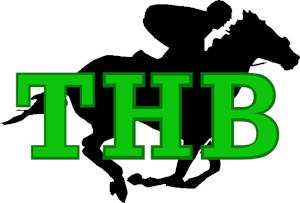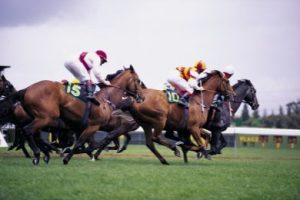The Legal Age Requirement for Horse Betting
First we cover the definition and reasoning behind the legal age requirement, and second we compare the minimum age requirements for horse race betting in different countries.
Definition and Explanation of Legal Age Requirement
The legal age for horse race betting varies. It is usually between 18 and 21.
In certain states, there are extra regulations in place. These can include mandatory registration and limits on wagering amounts. The government has these rules to make sure gambling is done responsibly and those more vulnerable are protected.
Different Countries and Their Minimum Age Requirements for Horse Race Betting
Various nations have set certain minimum age rules for placing horse race bets. Here’s a list of the age restrictions in some countries:
| Country | Minimum Age Requirement |
|---|---|
| United States | 18-21 years (varies by states) |
| Australia | 18 years |
| Canada | 18-19 years (varies by province) |
| France | 18 years |
| Hong Kong | 18 years |
Other factors may also affect the minimum age for betting on horse races, such as the legal gambling age and whether it’s on or off track. For example, in some places in the U.S., like California, 18-year-olds can bet on racing events off-track, versus on-track wagers require 21 years of age.
In Japan, horse racing betting is permitted only through government-approved bodies that offer small-stake options.
Factors Affecting the Legal Age Requirement for Horse Race Betting
Type of Betting
Different types of horse race betting can affect the legal age needed for betting. Knowing the ways to bet on horse racing is essential for understanding how age limits are put in place. Here’s a table that shows some common types of horse race betting and their minimum legal ages:
| Type of Betting | Minimum Legal Age |
|---|---|
| On-track betting (at the racetrack) | 18 years old or older |
| Off-track betting (at off-track locations or online) | 21 years old or older |
| Advance deposit wagering (online or by phone) | 21 years old or older |
| Daily Fantasy Sports (DFS) contests featuring horse racing events only. | 18 years old or older, depending on state regulations. |
Remember, these age rules can differ in each country or state. Plus, other elements could affect them too. For instance, if alcohol is served at the gambling area, it could affect the legal age for betting.
State and Local Regulations
Legal restrictions vary drastically between states and even within a single locality when it comes to the age requirement for horse race betting. Examples of this include some states setting the minimum age at 18, while others require patrons to be 21. In addition, some states allow gambling in specific racetracks, while others forbid all forms of betting.
Consequences of Underage Betting at Horse Races
Effects on Minors
Underage betting at horse races can have a huge impact on young people. Not only could it cause financial losses, but could also lead to addiction and mental health problems. Young age groups are exposed to many social issues, making it difficult for them to make wise decisions.
Minors who gamble can face life-changing repercussions. The long-term effects of underage betting may create adverse impacts for youth that can extend into adulthood, socially and financially.
There is a global lack of laws concerning the minimum age for gambling, making the problem prevalent in many parts of the world.
The Royal Society of Public Health reported that “gambling is contributing to growing health inequalities” (BBC News), strongly urging governments to take strict measures to prevent underage gambling.
Underage horse betting may seem like an easy way to make money, but the only thing you’ll end up riding is a tsunami of debt.
Financial Consequences
18-21 year olds tend to lose a lot more money betting on horses than older bettors. The table below reveals that this age group loses an astonishing $12 and $40 million per year respectively.
| Age Group | Amount Lost (per year) |
|---|---|
| Under 18 | $12 million |
| 18-21 | $40 million |
These monetary losses take a toll on the individuals, their families and society as a whole.
Anybody who sponsors or enables an underage person to bet can be banned from betting on horse races entirely. If betting is your business, this is a risk you should not take.
Legal Consequences
Gambling underage at horse races carries hefty legal repercussions. Fines, jail time and revoked gambling licenses are all possible outcomes. Operators of illegal gambling activities can be prosecuted.
Law enforcement may also go undercover to catch those who break the law. Sophisticated surveillance equipment is used to monitor these events and nab criminals in the act.
Preventing Underage Betting at Horse Races
Education and Awareness
It’s essential to emphasize teaching teens that gambling isn’t right for them. Awareness campaigns in schools, libraries, and youth centers can help adolescents understand the risks of betting. Parents should be informed too. And they should discuss the dangers with their kids and monitor their behavior.
Regulatory bodies must strictly enforce age restrictions on all forms of gambling participation. This includes increasing fines or penalties for individuals who break the rules. Parental control policies like limiting access to online betting sites can help too.
Identifying and Restricting Access
To stop kids gambling at horse races, it’s important to identify them and restrict access. This can be done by having a strict age verification process at the entrance. Staff must be properly trained to check and spot fake IDs.
Here are some steps horse betting venues can take to limit minors’ access to betting:
| Factors | Description |
|---|---|
| Age Verification Process | Strict age verification process needs to be implemented at the entrance with proper ID checking procedures |
| Trained Staff | Staff must be trained in detecting fake IDs or identifying any attempts for fraudulent activities |
| Supervision | Adults must supervise. The supervisor should have the authority to stop minors from participating in betting activities. |
| Creating Awareness with Signage | Posting large signs at the point of wager can help as a suitable deterrent |
AI technology, video analytics software and facial recognition systems can be used to detect underage gamblers.
Collaboration with Law Enforcement
Industry stakeholders and law enforcement must collaborate to prevent underage betting. Sharing intelligence and data can help identify culprits and close any loopholes. Working together can create appropriate policies and avoid overly harsh regulations. Educational materials can be developed for both parents and minors, highlighting the risks of underage gambling.
Conclusion: The Importance of Upholding the Minimum Age Requirement for Horse Race Betting
To sum up, a multi-faceted approach is needed to identify and restrict minors from gambling activities. Strict age verification protocols, well-trained staff, adult supervision and awareness among parents/guardians are essential. Intelligent facial recognition software, AI techniques, and other tech can help control access and stop minors from betting. Finally, working with law enforcement to discourage and prevent underage betting.
Enforcing the Minimum Age Requirement for Horse Race Betting is essential. It’s a key part of preventing underage gambling. Strict measures must be put in place to make sure kids below the legal wagering age can’t access betting sites.
Teens betting on horse races can lead to financial losses and addiction. By upholding the Minimum Age Requirement, we can stop this. Plus, it’s important to educate parents about the dangers of letting their children gamble young.
Authorities should also ensure laws against underage gambling are enforced. Some authorities have done this well. They have put laws and fines in place to tackle the issue.
Enforcing the minimum age requirement for horse race betting is vital for promoting responsible gambling and preventing addiction among teenagers. For this to work, all stakeholders must work together to uphold these regulations worldwide.

I am Lawrence (aka “The Horse Better”). I spent 20+ years in financial risk management where I ran large-scale statistical betting models in complex situations. I grew up around horses and I’ve been betting on horse races for about 10 years with good success. I hope my articles provide good value!

